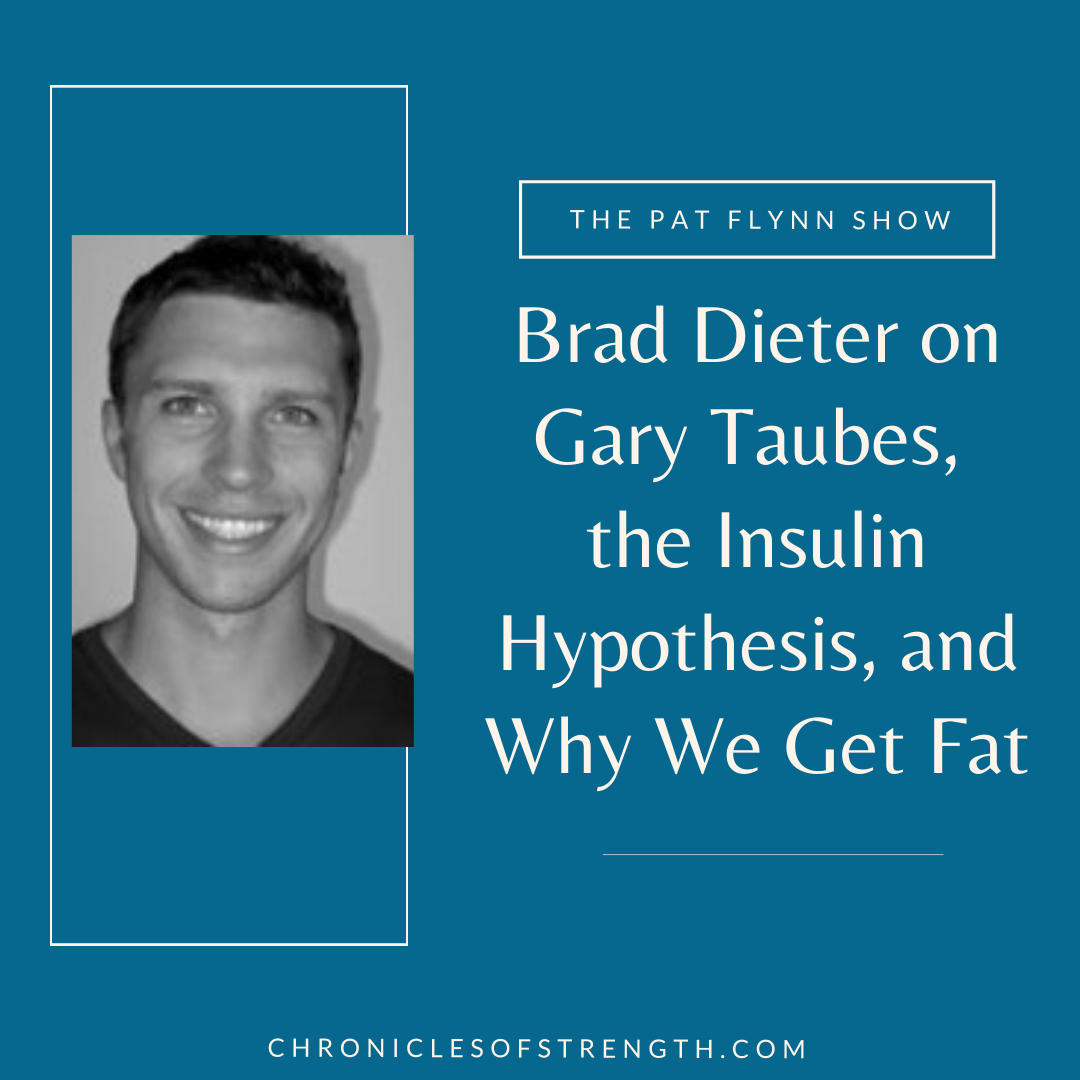
Brad Dieter returns to The Pat Flynn show to discuss the (now infamous) debate between Gary Taubes and Stephan Guyenet on Joe Rogan’s podcast over “Why We Get Fat?” Is the primary driver behind the obesity epidemic calories or carbohydrates? What questions should be asking concerning this debate? What type of evidence should we be looking for to determine who has the better model? Finally, what is Brad’s position on the subject?
Dr. Brad Dieter on Gary Taubes, the Insulin Hypothesis,
and Why We Get Fat
About Brad

Brad is a scientist and entrepreneur whose goal is to bring science and industry together to improve human health and well-being through the development of new technologies. Brad is a trained Exercise Physiologist, Molecular Biologist, and Biostatistician. He received his B.A. from Washington State University and a Masters of Science in Biomechanics at the University of Idaho, and completed his PhD at the University of Idaho. He completed his a post-doctoral fellowship in translational science at Providence Medical Research Center, Providence Sacred Heart Medical Center and Children’s Hospital where he studied how metabolism and inflammation regulate molecular mechanisms disease and is involved in discovering novel therapeutics for diabetic complications. His research career has spanned the translational spectrum utilizing basic science, human trials, and machine learning in large data sets to identify and develop novel therapies and technologies. His long term career goals include leading teams of people to make major inroads in health care through the development of new technology. Brad is also passionate about scientific outreach and bringing science to the public.
Check out Macros Inc!
Related Episode
The Pat Flynn Show
If you enjoyed this episode, it would mean the world to me if you could subscribe to, and leave a review for, The Pat Flynn show on iTunes HERE or Stitcher HERE.
Reading your reviews and hearing your feedback is what keeps me fired up to make The Pat Flynn Show happen. Thank you!
Hi Pat,
I always enjoy your podcast and appreciate your very reasonable approach to discussing even hotly debated topics like this one. Riffing off your question “how would you know if you were wrong” it occurred to me that there’s a big potential problem with all the studies Dr. Dieter cited which seem to back up the excess calorie explanation for fat gain and disprove the insulin/hormone model. I’ve read and listened to plenty of apparently well educated people on both sides of the debate, and one thing that’s clear is that epidemiological studies usually have far too many potential confounding factors to draw strong conclusions. Controlled interventional studies are far better, but all have one downfall – the factor of time. It’s nearly impossible to run controlled studies for more than a few weeks due to the costs and impracticality. But if it’s *chronically* high insulin levels from regular high carb consumption that eventually results in obesity, on a time scale measured in years rather than weeks, and likewise, restoring optimal hormone levels and dropping significant fat by reducing carbs takes a similarly long time frame, then how would Dr. Dieter know if he was wrong?
Hi Paul,
Thanks for the kind words about the podcast!
I don’t want to speak entirely for Dr. Dieter, but I’m willing to guess that if such a study were conducted where calories were kept below maintenance, macros carefully selected and controlled, and the carbohydrate rich group still gained body fat, whereas the low-carbohydrate group did not, then I’d imagine that would count as strong evidence in favor of the insulin hypothesis (obviously, we’d need to be very clear about what we mean by chronically elevated), which Dr. Dieter would, I assume, happily acknowledge. Perhaps that would not overthrow the orthodox model, but I think any curious scientist would say such a finding merits further attention and research. The question, then, is have any studies of that sort been conducted, and, if so, what was the outcome? I will not pretend to have poured through the literature to have a confident answer on that, but if so, I would be willing to count that as evidence in a particular direction.
What do you think?